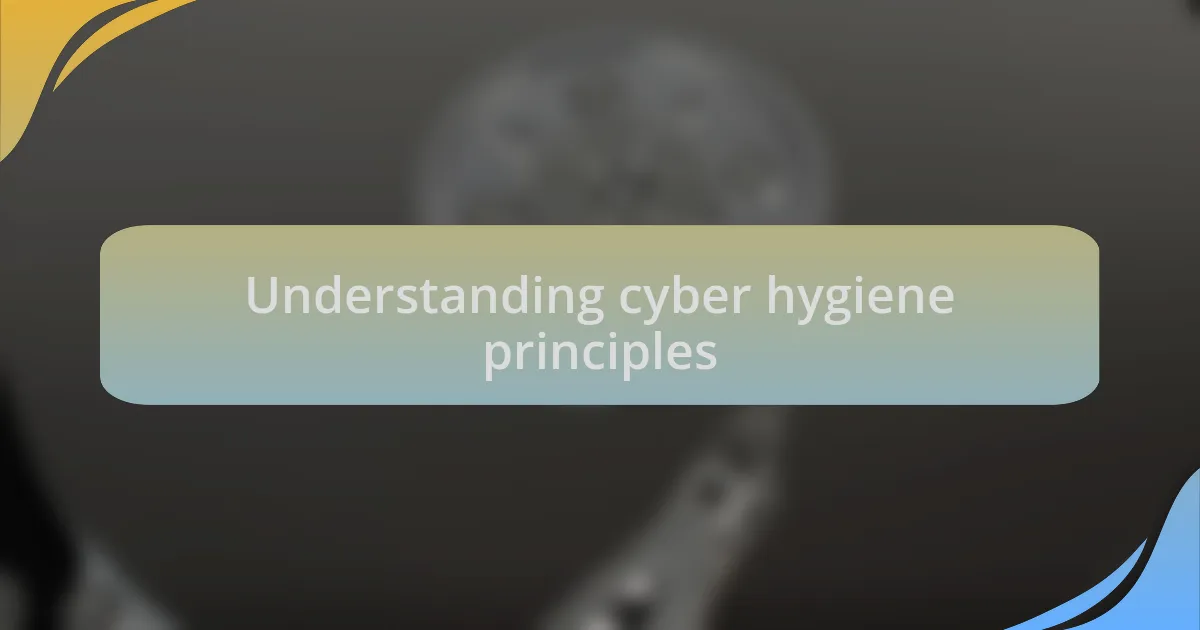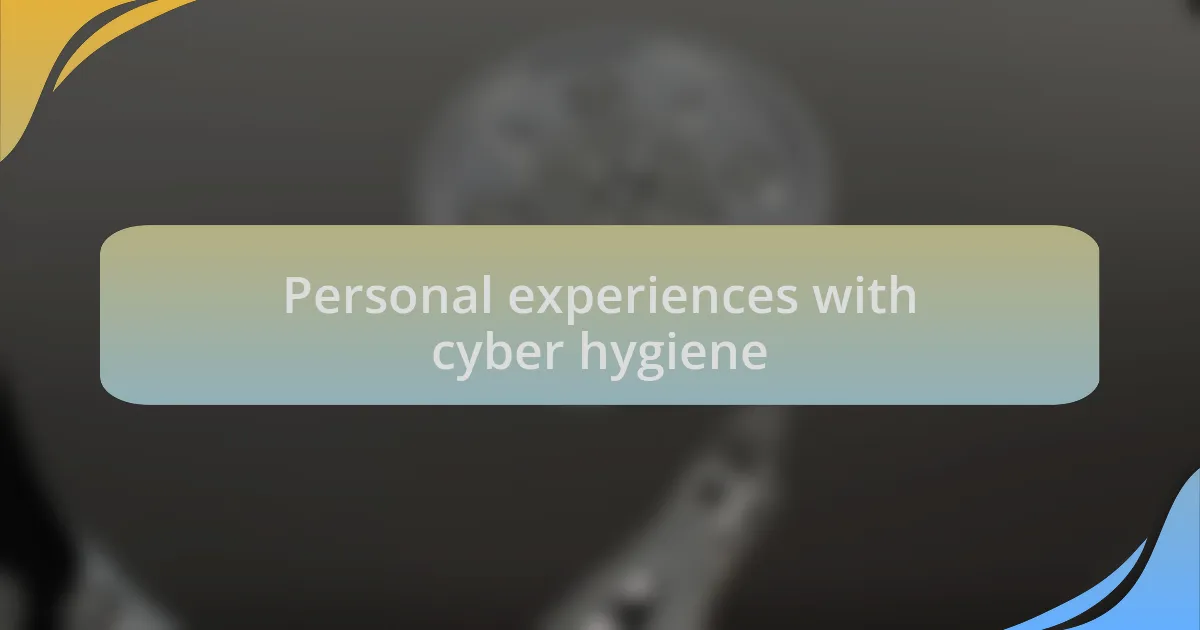Key takeaways:
- Strong, unique passwords and using a password manager are crucial for account security.
- Regular software updates prevent malware and system failures, safeguarding digital life.
- Two-factor authentication adds an essential layer of security, enhancing protection for sensitive information.
- Documenting passwords systematically helps avoid account access issues and frustration.

Understanding cyber hygiene principles
Cyber hygiene principles are essential practices that ensure your digital environment remains secure and resilient. I remember the first time I had to deal with a phishing email; I felt this immediate sense of vulnerability. It made me realize how crucial it is to stay educated about potential threats and to regularly update my security settings, just as I would with locks on my doors.
One fundamental principle I’ve learned is the importance of strong, unique passwords for each account. It sounds basic, but I can’t stress enough how many times I’ve seen friends fall victim to password breaches. Aren’t we all tired of hearing about hacked accounts? By using a password manager, I’ve turned a daunting task into something manageable and, surprisingly, stress-free.
Regular software updates are another key aspect that ties back to cyber hygiene. I used to delay updates, thinking they were more of a nuisance than a necessity. But after witnessing a close friend’s system crash due to malware that could have been prevented with a simple update, I vowed never to let that happen to my own devices again. Isn’t it a small price to pay for peace of mind?

Personal experiences with cyber hygiene
I recall a tense moment when my computer suddenly froze, and panic set in. It turned out that I had neglected to check for software updates for months. The dread of losing important documents made me realize that cyber hygiene is not just about security; it’s about safeguarding my digital life. How often do we underestimate the importance of a simple update?
Another experience that stands out for me was when I set up two-factor authentication on my accounts. Initially, I hesitated, thinking it would be an inconvenience. But after using it, I found it reassuring, adding a necessary layer of security. Doesn’t it feel great to know that an extra step can protect your most sensitive information?
Finally, I once lost access to an online account due to a forgotten password. It was a frustrating process to recover it, and I found myself wishing I had documented my passwords more systematically. That ordeal taught me the absolute necessity of maintaining a secure password record. Have you ever faced similar frustrations that could have been easily avoided with better cyber hygiene?